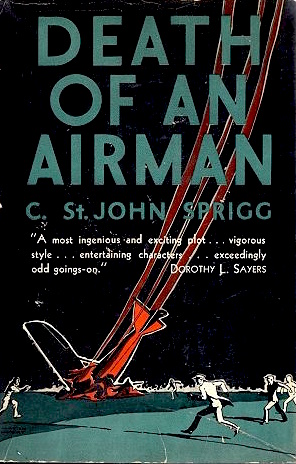 Much as I love contemporary crime fiction – after all, that’s what I write! – lately, I’ve been bingeing on Golden Age detective stories. I suppose there are three reasons for this.
Much as I love contemporary crime fiction – after all, that’s what I write! – lately, I’ve been bingeing on Golden Age detective stories. I suppose there are three reasons for this.
First, I’m at the stage of planning my next novel, and rather than read what my peers are writing, just for the moment it makes sense to delve back into past crimes. Another factor is my work as series consultant for the British Library’s Crime Classics series. These books have become wildly popular, far exceeding our expectations.
And finally, although The Golden Age of Murder has finally hit the bookshelves, after many years of reading and research, my appetite for classic mysteries certainly hasn’t been sated. So I’ve been catching up with books that I didn’t get round to whilst working on my magnum opus, as well as re-reading a few old favourites.
 One of the authors I’ve been delighted to reintroduce in the Classic Crime series is Christopher St John Sprigg, a Marxist (and former aeronautical engineer), who died before the age of 30 while fighting in the Spanish Civil War. His Death of an Airman is a terrific book, and I’ve now read it twice. Great fun.
One of the authors I’ve been delighted to reintroduce in the Classic Crime series is Christopher St John Sprigg, a Marxist (and former aeronautical engineer), who died before the age of 30 while fighting in the Spanish Civil War. His Death of an Airman is a terrific book, and I’ve now read it twice. Great fun.
Golden Age stories often manifest high spirits – perhaps this was a way of helping authors and readers to escape from grim economic realities and the worsening international situation. The novels of Alan Melville and Edmund Crispin make lively and agreeable reading. Crispin’s are much better known, and I’ve enjoyed once again his classic The Moving Toyshop, but Melville’s Quick Curtain also amused me. It takes mocking aim at the theatre world, which Melville, a playwright, knew very well, and is another British Library reprint.
One thing strikes me forcibly when I read these books. Yes, they were primarily written to entertain rather than to educate, but they shed plenty of light on the times in which they were written. Nor were they always as cosy and conventional as has often been claimed. In more ways than one, with Golden Age detective stories, nothing is quite as it seems. Which is why they remain well worth republishing – and reading.
Martin Edwards was born at Knutsford, Cheshire and educated in Northwich and at Balliol College, Oxford University, in law. A member of the Murder Squad collective of crime writers, Martin is Vice Chair of the Crime Writers’ Association. In 2007 he was appointed the Archivist of the Crime Writers Association and in 2011 he was appointed the Archivist of the Detection Club. He is married to Helena with two children (Jonathan and Catherine) and lives in Lymm.
This “Writers on Reading” essay was originally published in “At the Scene” eNews November 2014 as a first-look exclusive to our enewsletter subscribers. For more special content available first to our enewsletter subscribers, sign up here.


